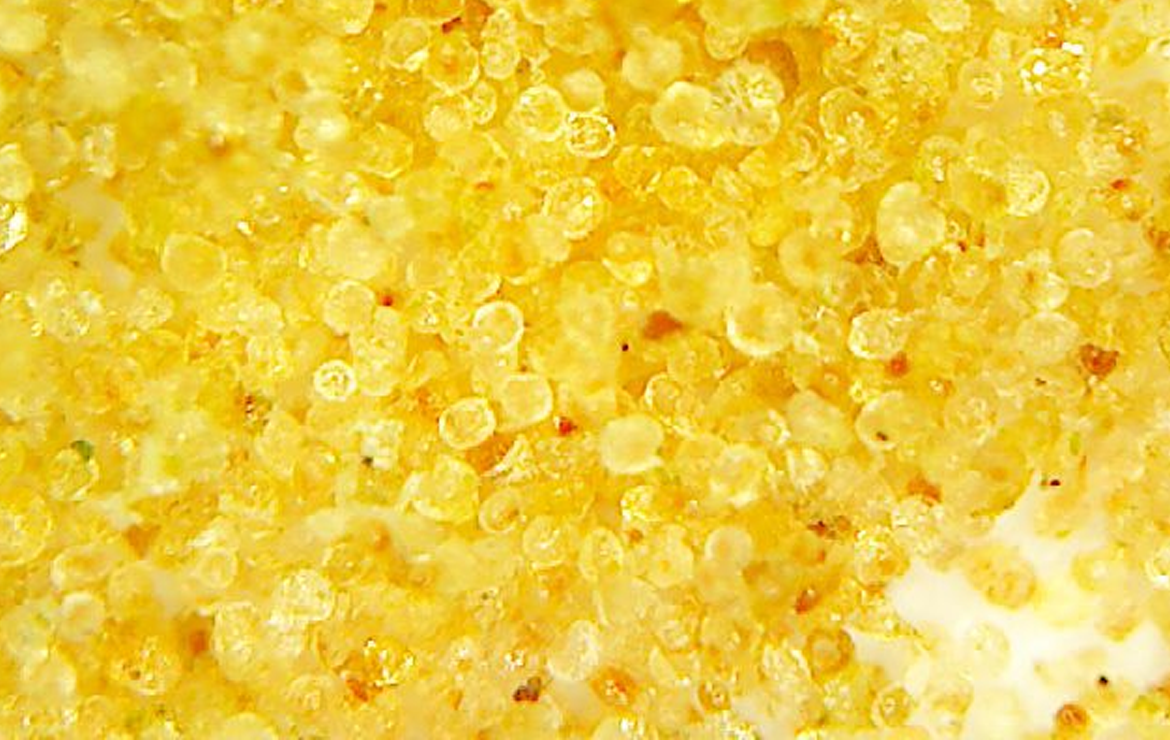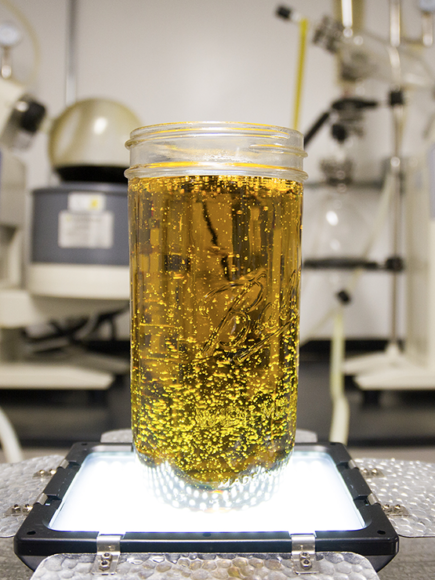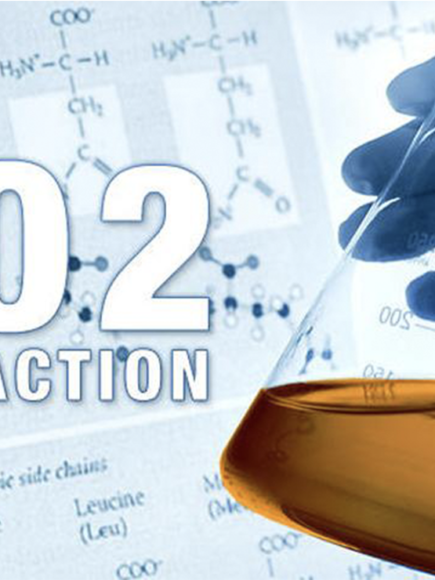Cannabis Mechanical Extractions – $150

With solventless extraction training, you can produce cannabinoid and terpene rich products within the comfort of your own home. In this course, you will learn solventless methods to extract the purest THC. Dry sifting, Full Melt Bubble Hash and Rosin Techniques are included in this course. Solventless Extraction Equipment and tools will also be reviewed.
Introduction – MECHANICAL EXTRACTIONS
4 Modules, Approximate lesson time: 1 hour
- Complete All Items
- Overview
- By taking this module, students will review the course objectives, the course navigation, the graded assessments, and how to view the scores.
- Lesson: Course Overview
- As a result of taking this course, students will be guided through the definition of an extraction. This course discusses mechanical extractions without the use of chemical solvents. These methods include dry sifting, bubble hash (IWE or ice water extraction), rosin pressing, and jar tech. Additionally, a review of the tools and equipment involved in these processes will be included in this course. The objective of this course is to gain a comprehensive understanding of mechanical extraction methods and their applications in the cannabis industry, including principles, techniques, and equipment used.
- Lesson: Instructor Introduction
- As a result of taking this module, students will be introduced to the Instructor who will list their specific qualifications for teaching this course
Module 1: Dry Sifting
Module 1: Dry Sifting
Prerequisites: Introduction
- Complete All Items
- Pre-Lesson
- Key Terms: Cannabis Extractions Mechanical – Dry Sifting
- The key terms will be instrumental in developing a good understanding of the course’s main topics. As a result of taking this module, you will begin to develop and relate these key terms to the topics found within this course, which will help establish a relationship between the two items and a deeper understanding of those main topics.
- Interactive Flash Cards: Cannabis Extractions
- As a result of taking this module, students can practice memorizing the most important key terms associated with this module
- Matching Game: Mechanical Matching!
- As a result of taking this module, students will race against the clock to match terms and definitions. students can choose several games to review all the material
- Lesson
- Lesson: Dry Sifting
- By completing this module, students will review the definition of a cannabis concentrate, learn what compounds are extracted, and learn about the first extraction method to cover, dry sifting. Equipment and techniques for dry-sifting cannabis, as well as dry ice sifting, are covered in this lesson. The objective of learning dry sifting techniques enhance one’s expertise in cannabis processing, providing valuable knowledge and skills for career advancement in the industry.
- Post-Lesson
- Bonus Lesson: Dry Sifting Review
- As a result of taking this module, students will receive further reinforcement of Lesson One by viewing the video which shows Illustrations of the Mechanical dry sift process. Videos provide visual clarity, making complex processes like dry-sifting cannabis more accessible to learners. This aids in understanding the steps and components involved.
- Key Terms Practice Quiz: Solventless Extractions (Review)
- This is a non-graded, practice activity to test students’ knowledge of the terminology that relates to the various topics and the themes found in this module. As a result of taking this module, It is encouraged to set a personal goal to earn at least a score of 70% for preparation of the Knowledge Check.
- Knowledge Check: Dry Sifting
- These quizzes are designed to elicit memories and check students’ understanding of the videos, summaries, and/or related resources found within the module. As a result of taking this knowledge quiz, students will encounter 8 multiple-choice questions. Students will need to earn 70% or higher (6.0 questions) to pass and move on in the course successfully.
- Conclusion: Dry Sifting
- This module prompts students to click the “Mark as Done” button to move on to the next Module.
Module 2: IWE Bubble Hash
Module 2: IWE Bubble Hash
Prerequisites: Module 1: Dry Sifting
- Complete All Items
- Pre-Lesson
- Key Terms: Cannabis Extractions Mechanical – IWE (Bubble Hash)
- The key terms will be instrumental in developing a good understanding of the course’s main topics. As a result of taking this module, you will begin to develop and relate these key terms to the topics found within this course, which will help establish a relationship between the two items and a deeper understanding of those main topics.
- Interactive Flash Cards: IWE (Bubble Hash)
- As a result of taking this module, students can practice memorizing the most important key terms associated with this module
- Matching Game: Bubble Hash Match
- As a result of taking this module, students will race against the clock to match terms and definitions. students can choose several games to review all the material
- Lesson
- Lesson: IWE Bubble Hash
- As a result of taking this module, students will have knowledge regarding the hydrophobic properties of trichomes, the hydrophilic properties of terpenes, and the step-by-step process of Ice Water Extraction. The learning objective of cannabis ice water extraction in a mechanical extraction course is important because it introduces a solventless method that focuses on preserving terpenes and cannabinoids, providing students with a comprehensive skill set that includes both solvent-based and solventless extraction techniques, ensuring versatility and adaptability in the cannabis industry.
- Post-Lesson
- Bonus Lesson: Micron-Management (and IWE)
- As a result of taking this module, students will receive further reinforcement of Lesson Two by viewing the video which shows Illustrations of the Mechanical IWE process. The objective of this bonus lesson is that videos provide visual clarity, making complex processes like ice-water extraction with cannabis more accessible to learners. This aids in understanding the steps and components involved.
- Key Terms Practice Quiz: IWE Review
- This is a non-graded, practice activity to test students’ knowledge of the terminology that relates to the various topics and the themes found in this module. As a result of taking this module, It is encouraged to set a personal goal to earn at least a score of 70% for preparation of the Knowledge Check.
- Knowledge Check: IWE Bubble Hash
- These quizzes are designed to elicit memories and check students’ understanding of the videos, summaries, and/or related resources found within the module. As a result of taking this knowledge quiz, students will encounter 8 multiple-choice questions. Students will need to earn 70% or higher (6.0 questions) to pass and move on in the course successfully.
- Conclusion: Mechanical Extractions- Bubble Hash
- This module prompts students to click the “Mark as Done” button to move on to the next Module.
Module 3: Rosin Pressing
Module 3: Rosin Pressing
Prerequisites: Module 2: IWE Bubble Hash
- Complete All Items
- Pre-Lesson
- Key Terms: Rosin Related Terms
- The key terms will be instrumental in developing a good understanding of the course’s main topics. As a result of taking this module, you will begin to develop and relate these key terms to the topics found within this course, which will help establish a relationship between the two items and a deeper understanding of those main topics.
- Interactive Flash Cards: Rosin
- As a result of taking this module, students can practice memorizing the most important key terms associated with this module
- Matching Game: Rosin Race!
- As a result of taking this module, students will race against the clock to match terms and definitions. students can choose several games to review all the materia
- Lesson
- Lesson: Rosin Pressing
- As a result of taking this module students will review the next type of mechanical extraction method which is called rosin pressing. During this discussion, a definition of rosin as hash oil, small craft pressing to commercialize rosin pressing, a step-by-step process of rosin extraction, safety guidelines, types of equipment, and tools used for rosin will be discussed. Students will also review the different types of rosin, such as flower rosin, hash rosin, and live rosin, and how the extraction process differs for each. The learning objectives for this module are to educate students on a relatively quick and straightforward extraction process, allowing for rapid production of concentrates without the need for lengthy post-processing. The efficiency of rosin pressing provides the cannabis industry with a relatively quick and straightforward extraction process, allowing for rapid production of concentrates without the need for lengthy post-processing.
- Post-Lesson
- Bonus Lesson: Flower Rosin (Tips & Tricks)
- As a result of taking this module, students will receive further reinforcement of Lesson Three by viewing the video which shows tips and tricks for the cannabis rosin pressing process. The objective of the bonus lesson is that videos provide visual clarity, making complex processes like ice-water extraction with cannabis more accessible to learners. This aids in understanding the steps and components involved.
- Key Terms Practice Quiz: Rosin Review
- This is a non-graded, practice activity to test students’ knowledge of the terminology that relates to the various topics and the themes found in this module. As a result of taking this module, It is encouraged to set a personal goal to earn at least a score of 70% for preparation of the Knowledge Check.
- Knowledge Check: Rosin
- These quizzes are designed to elicit memories and check students’ understanding of the videos, summaries, and/or related resources found within the module. As a result of taking this knowledge quiz, students will encounter 9 multiple-choice questions. Students will need to earn 70% or higher (7.0 questions) to pass and move on in the course successfully.
- Conclusion: Cannabis Extractions Mechanical – Rosin
- This module prompts students to click the “Mark as Done” button to move on to the next Module.
Module 4: Mechanical THCa Separation & Equipment
Module 4: Mechanical THCa Separation & Equipment
Prerequisites: Module 3: Rosin Pressing
- Complete All Items
- Pre-Lesson
- Key Terms: Mechanical THCa Separation and Equipment
- The key terms will be instrumental in developing a good understanding of the course’s main topics. As a result of taking this module, you will begin to develop and relate these key terms to the topics found within this course, which will help establish a relationship between the two items and a deeper understanding of those main topics.
- Interactive Flash Cards: THCa Separation Methods
- As a result of taking this module, students can practice memorizing the most important key terms associated with this module
- Matching Game: Separation Methods
- As a result of taking this module, students will race against the clock to match terms and definitions. students can choose several games to review all the material
- Lesson
- Lesson: Mechanical THCa Separation & Equipment
- As a result of taking this module students will learn a step-by-step protocol of extracting THCa on the rosin press or from a jar tech method will be explained, hot or cold curing methods, and a review of solvent-less equipment and tools. The learning objectives of this module are to equip students with a diverse range of mechanical extraction methods and curing options. By learning these techniques, students will be able too adapt to various product requirements and consumer preferences in the cannabis industry. It encourages innovation by exposing students to emerging techniques and equipment in the solvent-less extraction field.
- Post-Lesson
- Bonus Lesson: A Time to Reflect
- As a result of taking this module, students will receive further reinforcement of Lesson Four by viewing the video which shows the cannabis crystallization process. The objective of the bonus lesson is that videos provide visual clarity, making complex processes more accessible to learners. This aids in understanding the steps and components involved.
- Key Terms Practice Quiz: THCa Separation
- This is a non-graded, practice activity to test students’ knowledge of the terminology that relates to the various topics and the themes found in this module. As a result of taking this module, It is encouraged to set a personal goal to earn at least a score of 70% for preparation of the Knowledge Check.
- Knowledge Check: Mechanical THCa
- These quizzes are designed to elicit memories and check students’ understanding of the videos, summaries, and/or related resources found within the module. As a result of taking this knowledge quiz, students will encounter 8 multiple-choice questions. Students will need to earn 70% or higher (6.0 questions) to pass and move on in the course successfully.
- Conclusion: Mechanical THCa Separation & Equipment
- This module prompts students to click the “Mark as Done” button to move on to the next Module.
CONCLUSION
Prerequisites: Module 4: Mechanical THCa Separation & Equipment
- Complete All Items
- Survey: End of Course
- The survey is not graded. Taking this survey will help us better understand the student’s experience taking this course. Cannabis Hub members will review students’ feedback and use it to update the course in the next iterative cycle.
- Mark as Done: Course Completion
- This module prompts students to click the “Mark as Done” button to complete the course. As a result of the student marking the course as complete, the system is prompted to generate a Certificate of Completion, which can be downloaded and printed
Overview
- 100 Students Enrolled
- Language: English
- Duration: 1 hour
- Lectures: 42
- Certificate of Completion
- Course Requisites: Pay for the course, take the course, and pass the assessments with a 70% or higher grade requirement
-
Introduction
-
Module 1
-
Module 2
-
Module 3
-
Module 4


